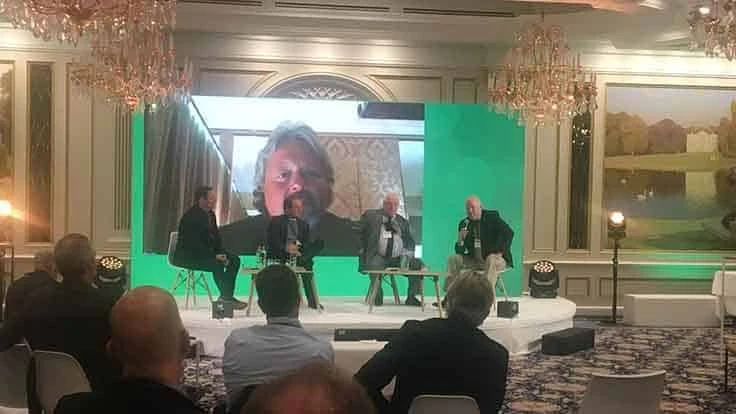
Photo courtesy of the Bureau of International Recycling.
The Brussels-based Bureau of International Recycling (BIR) has joined a chorus of other associations and business owners expressing concern about circular commodity trading restrictions being proposed in Europe and elsewhere.
BIR says it supports the recent initiative of its European member federation EuRIC regarding the potential impact of the upcoming European Waste Shipment Regulation on global free and fair trade of “raw materials from recycling (RMR).”
EuRIC, in an open letter addressed to executives of the European Commission, the European Parliament and the Slovenian Presidency of the Council, has called for a clear distinction in the legal regime between “problematic waste streams” and RMR with long-established trading values.
More than 260 European companies and national recycling associations co-signed the EuRIC letter unintended but potentially negative consequences of a blanket restriction of RMR exports.
“At the height of the pandemic in Europe, the recycling industry was almost universally regarded as ‘essential,’ and was therefore allowed to continue in operation,” says BIR President Tom Bird. “It is only by maximizing the substitution of primary raw materials by raw materials from recycling that we will succeed in optimizing the climate change mitigation effects of recycling. No circular economy can be seriously considered and achieved without a fluid global market for raw materials from recycling.”
The topic also was front and center at the BIR’s recent Non-Ferrous Division meeting and at “The Challenge” panel discussion held in late October in Brussels.
At the Non-Ferrous Division meeting, Murat Bayram, who works from Germany for United Kingdom-based European Metal Recycling (EMR), said the use of raw materials from recycling in production processes saves on resources, energy and lessens CO2 emissions, while international trade ensures these materials “arrive where they are needed.”
He also asked, “Don’t other countries outside the EU have a right to sustainable production?”
While the EU scrutinizes scrap trading on the outbound side, the government of Malaysia has proposed barriers on the inbound side. Eric Tan of the Malaysia Non-Ferrous Metals Association said that nation’s proposed guidelines for importing scrap would “cause more harm than good to the whole nonferrous metals industry in Malaysia.”
In addition to problematic purity thresholds (well beyond what any ore can offer), Tan said proposed pre- and postshipment inspection policies would further damage Malaysia’s competitiveness in terms of scrap procurement.
Bayram said, “The trade in raw materials from recycling must be promoted much more strongly to enable sustainable production everywhere in the world. In short, less trade leads to less recycling, more trade leads to more recycling.”
Bayram also participated in “The Challenge” panel discussion, along with Michael Lion, chair of the BIR’s International Trade Council; Mark Sellier of Hong Kong-based Global Metals Network; and George Adams of United States-based SA Recycling.
Lion characterized existing and looming trade barriers as existential threats confronting BIR members that are based on ill-conceived ideas. Sellier said scrap processors and traders are a crucial component of the raw materials supply chain who have earned greater recognition and support for their roles rather than regulatory hostility. Adams focused on workplace culture and empowerment measures companies can take to foster career paths within the recycling and processing sector.
Latest from Recycling Today
- BMW Group, Encory launch 'direct recycling’ of batteries
- Loom Carbon, RTI International partner to scale textile recycling technology
- Goodwill Industries of West Michigan, American Glass Mosaics partner to divert glass from landfill
- CARI forms federal advocacy partnership
- Monthly packaging papers shipments down in November
- STEEL Act aims to enhance trade enforcement to prevent dumping of steel in the US
- San Francisco schools introduce compostable lunch trays
- Aduro graduates from Shell GameChanger program





